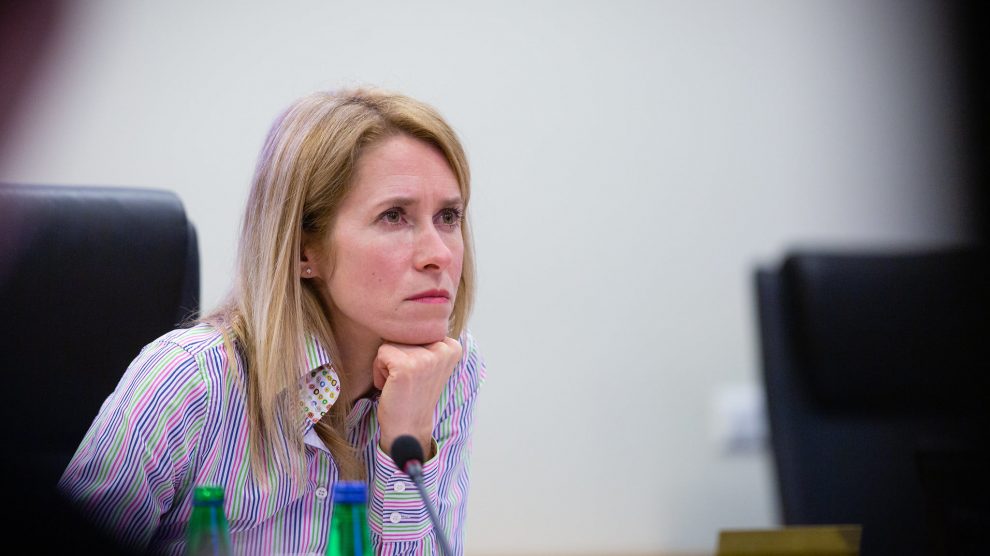Our weekly digest of articles about emerging Europe published elsewhere this week, all of which caught our eye and all of which are well worth your time. Listing them here, however, does not necessarily mean that we agree with every word, nor do they necessarily reflect Emerging Europe’s editorial policy.
Estonia turns the page on its flirtation with the far-right EKRE
The Estonian political class and media, and many ordinary Estonians, have breathed a sigh of relief following a period in which the far-right EKRE, with its leaders’ outrageous statements, had become a source of embarrassment.
How Belarus’s protesters staged a digital revolution
When protests against Alexander Lukashenko erupted on August 9 last year, after he claimed 80 per cent of the vote in a fraud-stained election not recognised by the US or EU, Nexta’s ability to evade the internet blackout proved crucial. With other bloggers jailed, it had become Belarus’s biggest independent news source, with 350,000 subscribers. After the election, its subscriber base surged to 2.17 million — more than a fifth of Belarus’s 9.5 million population.
Janša dreams of a ‘second erasure’ in Slovenia
Decades after thousands of people were erased from the register of Slovenia’s permanent residents – as potential troublemakers – the country’s nationalist PM seems bent on getting rid of his critics in much the same way.
Congo-Brazzaville strongman buys secret weapons haul from Azerbaijan
Congo-Brazzaville’s repressive government has quietly bought an arsenal from Azerbaijan. Opponents of President Denis Sassou-Nguesso say one recent cache is designed to tighten his grip on the nation.
Can aircraft technology uncover mass graves in Bosnia?
Drones equipped with Lidar remote sensing technology could help find the 7,573 people still missing 25 years since Bosnia’s war ended.
Bulgarian taxpayers paying for officials’ cheap vacations
Remnants of a communist-era hotel and resort network that once provided subsidised vacations for millions of Bulgarian workers still exist. But more than three decades after the collapse of communism, the legacy of Bulgaria’s Soviet-style “recreation stations” is a perk enjoyed only by public officials and civil service employees.
After tentative start, Kazakhstan is obliterating Xinjiang activism
In 2018, Kazakhstan emerged as something of an unlikely hub for foreign reporters in search of details on the unfolding humanitarian crisis in Xinjiang. Campaigners like Serikzhan Bilash, a garrulous critic of Beijing, seized eagerly upon that attention. It did not take long for authorities in Nur-Sultan to grow nervous.
Protecting the sea gives glimmer of hope to fish stocks in the Adriatic
There is a tiny island in the Adriatic sea called Jabuka, which means apple in Croatian. Some might consider that a rather contradictory name for this uninhabited volcanic landmass with difficult and limited access. But to people in this region, its name is now increasingly symbolic. This little apple in the Adriatic represents hope for a healthier, blossoming Mediterranean.
What’s behind the planned Uzbekistan-Afghanistan-Pakistan railway?
From the first tracks laid in 1879 at Gyzylarbat, northwest of the capital of modern-day Turkmenistan, locomotive transport has always been central to Central Asia due to the region’s distance from the open sea. Although first set down amid the expansion of the Russian Empire, today, railways have a central role in the economic planning of the Central Asian states, especially in Kyrgyzstan and double-landlocked Uzbekistan.
In Montenegro, legendary nudist camp waits to be rescued
Stepping between abandoned bungalows, tourist guide Ismet Karamanaga recalls the naked heyday of Ada Bojana in the 1970s and 80s, when 75,000 square metres of Adriatic beach attracted nudists from across Europe. The camp restaurant would be heaving, nudists strolling over the sand. Decades later, that same once-thriving beachfront restaurant has been devastated by sea erosion, while most of the nudist settlement is abandoned, waiting for investors who never come.
The designer making retro-futuristic womenswear inspired by Eastern Europe
For her namesake label’s debut collection, Fidan Novruzova explores her Azerbaijani and Moldovan roots.
‘Our city froze’: rereading Kolau Nadiradze’s 1921 poem on Georgia’s lost golden age of independence
In 1918, Georgia became the world’s first socialist democracy. But the Soviet occupation, which began on February 25, 1921, abruptly ended that brief, hopeful political moment. Suppressed for decades, a poem by Kolau Nadiradze captures the feeling of fear and betrayal at the time of the Soviet invasion.
Photo: Kaja Kallas official Facebook page.
Unlike many news and information platforms, Emerging Europe is free to read, and always will be. There is no paywall here. We are independent, not affiliated with nor representing any political party or business organisation. We want the very best for emerging Europe, nothing more, nothing less. Your support will help us continue to spread the word about this amazing region.
You can contribute here. Thank you.



